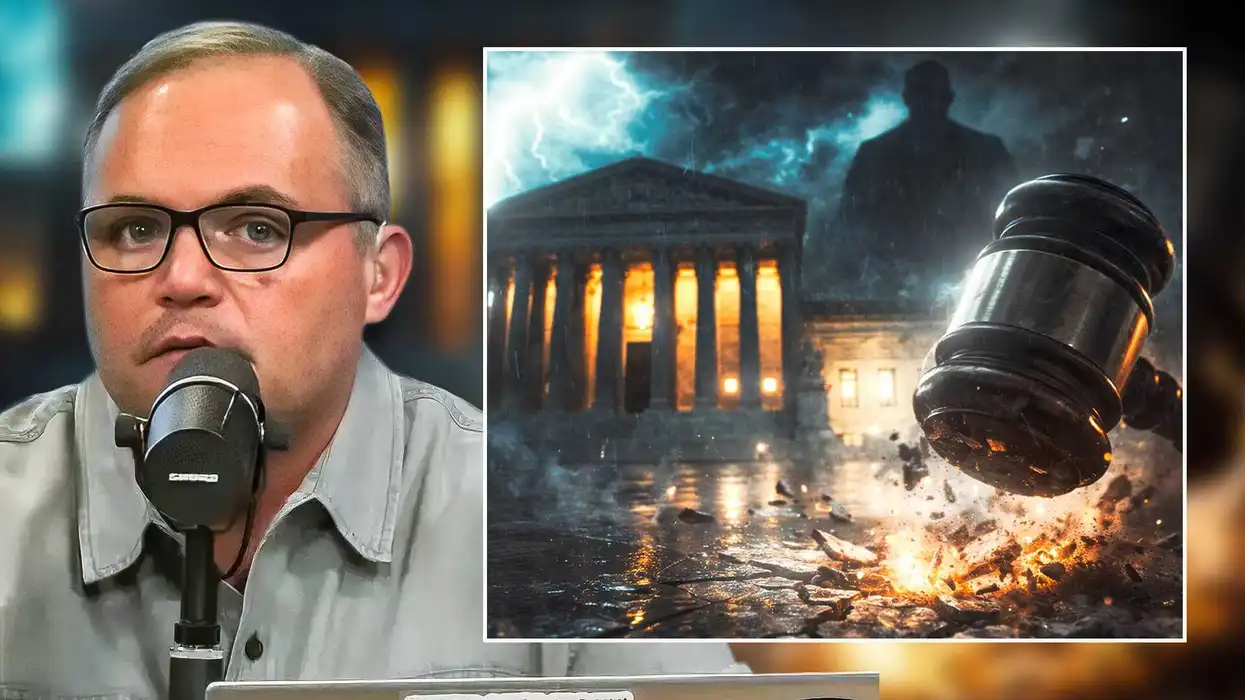The American Bar Association declared this week that Judge Neil Gorsuch is "well-qualified" to serve on the U.S. Supreme Court, giving President Donald Trump's pick to replace the late Justice Antonin Scalia the group's highest rating.
The ABA's standing committee on the federal judiciary reached the decision unanimously, according to Chairwoman Nancy Scott Degan, who informed Senate Judiciary Committee Chairman Chuck Grassley (R-Iowa) and Sen. Dianne Feinstein (D-Calif.), the committee's ranking member, in a letter Thursday.
Grassley offered a glowing statement in response to the group's announcement:
The ABA’s ringing endorsement is no surprise given Judge Gorsuch’s sterling credentials and his distinguished decade-long record on the Tenth Circuit. Former Chairman [Patrick] Leahy and Minority Leader [Chuck] Schumer have called the ABA’s assessment the “gold standard” in evaluating federal judicial nominations. In light of Judge Gorsuch's impeccable record, it’s hard to imagine any other result from the ABA's consideration.
The ABA also gave former President Barack Obama's final Supreme Court pick, Judge Merrick Garland, who was not confirmed, a "well-qualified" rating. In the past, as Grassley noted in his statement, Democrats have regarded the bar association's ratings of potential high court justices as the "gold standard."
"This rating certainly doesn't hurt," Ilya Shapiro, a senior fellow in constitutional studies and editor-in-chief of the Cato Institute's Supreme Court Review, told TheBlaze. "The ABA is, by the right, a left-wing organization. By the left, it's seen as the gold standard for judicial nominees, so this takes an arrow out of the quiver of whatever opposition to Gorsuch the Democrats are planning."
But the left has a somewhat storied history with its "gold standard" claim.
In 2001, then-President George W. Bush's administration ended the ABA's unofficial role in helping the White House screen prospective nominees to the Supreme Court. At the time, then-White House counsel Alberto Gonzales said it would be "particularly inappropriate ... to grant a preferential, quasi-official role to a group, such as the ABA, that takes public positions on divisive political, legal and social issues that come before the courts."
The Bush administration upended a 50-year tradition by casting the ABA aside. Gonzales made clear, though, that the White House would still consult the association but said the group would no longer be relied on "before and above all others."
"The administration will not notify the ABA of the identity of a nominee before the nomination is submitted to the Senate and announced to the public," Gonzales said.
At that, the firestorm of disapproval began.
Martha Barnett, who served as ABA president from 2000-01, said that she was "disheartened" by the decision and that the association was "concerned that politics may be taking the place of professionalism in the review."
Senate Minority Leader Chuck Schumer (D-N.Y.), who was a member of the Senate Judiciary Committee at the time, lambasted the Bush White House, calling the decision a "sad day for American justice."
"It looks as though they are going to substitute ideology for quality," he said. "For the last 50 years, the ABA was an essential part of the process, making sure that there was quality rather than ideology. Now all of that has changed."
Schumer and Sen. Patrick Leahy (D-Vt.), who was the ranking member of the Senate Judiciary Committee in 2001, informed the Bush administration that they would block any judicial nominations from receiving a vote until the ABA ratings were completed and made public.
But it was only a few years later that the Democrats' soaring rhetoric came crashing down and their admiration for the ABA fell to the wayside. When Bush nominated Judge (now Justice) Samuel Alito to the Supreme Court in October 2005 and Alito received a "well-qualified" rating from the ABA in January 2006, the group's assessment didn't seem to mean so much to the Democrats anymore.
Instead, Schumer resorted to nearly the same rhetoric he has used to attack Gorsuch, whom he expressed "serious doubts" about in January. In 2006, Schumer said he disapproved of Alito because his views were out of the "mainstream."
"The ABA ratings do not take into account whether a judge's judicial philosophy and views are in or out of the broad mainstream," the senator said.
Paul Rothstein, a law professor at Georgetown University at the time who had examined many of Alito's writings, rejected Schumer's claim that Alito was somehow not "mainstream."
"When he has no choice because the law is clear, he clearly obeys the law," Rothstein told Fox News. "Where the law leaves him some choice, yes, he goes a bit to the right, but it is never off the wall. It is never something that is not within acceptable legal parameters of legal reasoning."
And Shapiro feels today about Gorsuch as Rothstein felt about Alito a decade ago. Shapiro told TheBlaze there is "no way" the left can argue Gorsuch is not qualified for a seat on the Supreme Court.
"Indeed," he said, "given that some of the ratings — some of the lower-than-expected ratings of nominees in the past — have been related to ideology, I think it will also make it harder for Democrats to argue that Gorsuch is some sort of radical."
In addition, the Cato fellow pointed to the letter sent this week to Congress by 150 of Gorsuch's former Columbia University classmates, all of whom expressed support for the Supreme Court nominee. They described Gorsuch as "a serious and brilliant student who earned deep respect from teachers and students alike."
"Who judges what is out of the mainstream? Presumably, it's people who are learned in the law, that know Gorsuch's work best, that know what Supreme Court practice is, and I think those would be very effective tools," Shapiro said of how Republicans should fight for Gorsuch's nomination.
And to those on the left opposing Gorsuch, Shapiro had a simple message: "People who actually know what they're talking about say he should be confirmed."
While Schumer has signaled there will be a long fight on Capitol Hill over Gorsuch, Senate Majority Leader Mitch McConnell (R-Ky.) guaranteed this week that Gorsuch will be confirmed by the April recess.







